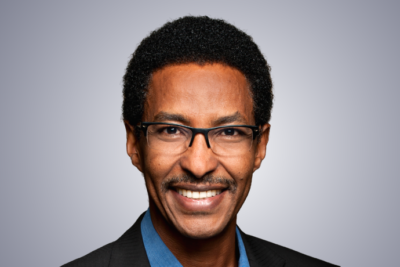
The Republic of Sudan
History
The Republic of Sudan is one of the countries in Northeast Africa, with a population of 45.70 million as of 2022. It is the third largest nation in Africa by area and the third largest by area in the Arab league, but for the secession of South Sudan in 2011. The people of South Sudan voted for a separation from the main Republic in January 2011 after many years of civil war and became an independent nation on July 9, 2011.
Khartoum is the capital city, while Omdurman has the largest population. The history dates to the reign of the Pharaohs and subsequent rule of the Egyptian New Kingdom (1500 BC-1070 BC) and the emergence of the Kingdom of Kush.
The Egyptian revolution of 1952 became the game changer, as it overturned the Monarchy and called for the British forces’ withdrawal from Sudan and Egypt. Mohammed Naguib, a co-leader of the revolution, half Sudanese, and the first President of Egypt, made it a priority to secure the independence of Sudan. In January 1956, Sudan became an independent State after the termination of the condominium of Anglo-Egyptian Sudan.
Ismail al Azhari served as the first Prime Minister of Sudan between 1954 and 1956, and as President from 1965 until he was overthrown by Gaafar Nimeiry in 1969.
Worthy of mention is the 30-year-old military dictatorship (1989-2019) under Omar al-Bashir of the National Congress Party (NCP), who was widely accused of human rights abuses, including the persecution of minorities and ethnic genocide because of his actions in the war in the Darfur region which erupted in 2003.
Because of the alleged killing of over 300,000 to 400,000 people, a significant protest began in 2018, demanding Bashir’s resignation from office, climaxing in a coup de tat on April 11, 2019, that led to Bashir’s imprisonment. As a result, the Transitional Military Council (TMC) took over the mantle of leadership on August 20, 2019. Still, it was later dissolved to allow the Sovereignty Council of Sudan to govern for thirty-nine months to aid the transition to democracy. But the Sovereignty Council and the Sudanese government were disbanded in October 2021 following a coup d’état spearheaded by General Burhan. The nation has been plugged into turmoil after the October coup d’état.
Current Governance Structure
The current political system has a Sovereign Council, comprising of six civilian and five military members chaired by General Abdel Fattah al Burhan as a collective head of state.
Before the current system of governance, a president was head of state, head of government, and commander-in-chief of the Sudanese Armed Forces in a de jur multi-party system.
Tending News in Sudan
The economic zone of Sudan received a significant boost on December 13, 2022, with a $ 6 billion deal for the development of a red seaport barely a week after the framework agreement for the transition to democracy (December 5) where, the ruling military leaders, and numerous civilian factions signed a “framework agreement” as the first component of a planned two-phase political process in anticipation of a new civilian government.
For the Red seaport, Sudan signed the initial deal led by the United Arab Emirates AD Ports Group and Invictus Investment to develop and build an expansive new economic zone. At the signing event, the Finance Minister, Gibril Ibrahim, said the project would boost the national economy, resulting in immeasurable benefits for the country.
The Abu Amama port will be built north of the critical hub of Port Sudan, including an industrial zone, an international airport and an agricultural space covering 400,000 acres. A long road will also be connected to Abu Amama port with the farming area of Abu Hamad in Sudan n’s River Nile State.
Osama Daoud Abdellatif, the head of the Dal Group is leading the Invictus Investment. At the same time, AD Ports Group is majority owned by ADQ, among Abu Dhabi’s sovereign wealth funds.
Sudanese Community in Ottawa
There is a critical mass of people of Sudanese descent in Ottawa, the capital region, under the auspices of the Sudanese Canadian Association of Ottawa (SCAO). It is a non-Soliciting corporation under Canada Not-for-profit Corporations Act 2014-10. The Association was registered on October 6, 2014.
The membership of the Association is open to all Sudanese and their families, landed immigrants, refugees and students who share the Mission and vision of the Association, which includes but is not limited to-
- Promoting the Sudanese culture and promoting healthy communal living among Canadians of Sudanese descent while cooperating with other communities and the multicultural heritage of Canada
- Encouraging generational legacy to sustain Sudanese culture in Diaspora
- Support new Sudanese immigrants, refugees, and students with social and settlement services
- Create programs and services for women and children, people with special needs and seniors in the community.
The Sudanese and South Sudanese communities in Ottawa have been very active and supportive of their home countries.

For instance, on Saturday, July 22, 2017, about two hundred friends and families in the Ottawa community converged on the Jim Durrell Community Centre on Walkley Road to raise money for thousands of people at risk of starvation and death in South Sudan.

The renowned Kakolo war dancers and other artists performed at the event.

Also, in the past, the Sudanese Canadian Association of Ottawa honoured members of its community who had excelled in their various fields in an entertaining evening of reflections, entertainment, and fine food. Award winners included community leaders, officers from the Canadian military, academics, students, scientists, university and college graduates, homemakers, artists, sportsmen, and women.


Notable among the winners were Professor Awad Ibrahim, Dr Galal Ali, and artist Hamid Ayoub, including military officers Shihab Ahmed, Sami Hussein and Yassir Godatalia, all of whom had served with distinction with Canadian Forces in Afghanistan.

In November 2022, Sudanese-born and Ottawa resident Awad Ibrahim was appointed the first Anti-Racism professor with the University of Ottawa
Contact Information for the Association: Head office- 8 Scarlet Court, Ottawa, ON K1T 3R5 Canada E-mail: [email protected]
************************************************************************

Joy Osiagwu is a Project Officer with Black History Ottawa. She has over two decades of experience as a broadcast journalist in Nigeria and North America. She holds a Master of Business Administration (MBA) degree from the University of Cumbria in the United Kingdom, plus a post-graduate diploma in Broadcast Performing Arts from the Columbia Academy, Vancouver, British Columbia.
